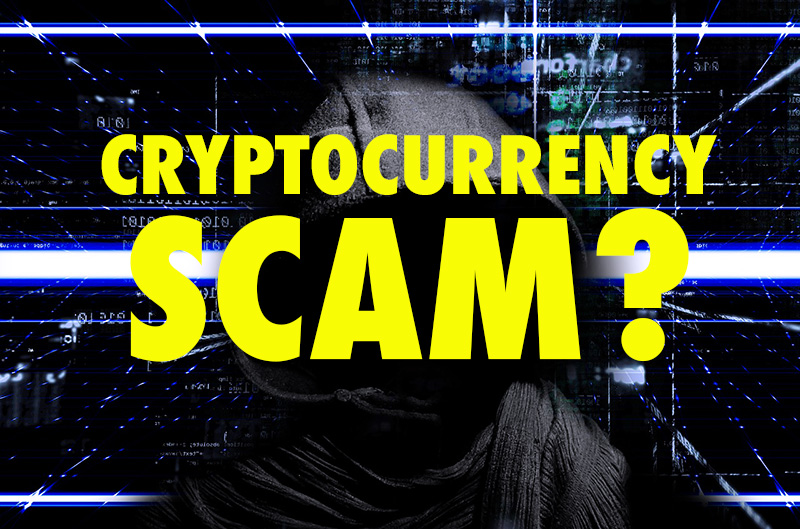How to Find The Crypto Scammers And Beat Them - Prodeum.io Scam

You've quite recently discovered it — a promising crypto-currency startup that few have known about. It claims to build up a blockchain framework for agrarian items, for example, foods grown from the ground.
Its objective: to raise $6.5 million.
It's energizing to be a piece of the starting period of an organization — especially a crypto organization. You choose to invest a bit. At the point when the startup, called Prodeum, tries to pitch its tokens to you through a gathering pledges system called an ICO — or Initial Coin Offering — you say: "Beyond any doubt, for what reason not?" You hand over a couple of hundred dollars.
At that point the organization abruptly vanishes.
Fortunately, you didn't hand over your life funds. Phew. However, you're careful about the crypto business now. Not simply you, but rather the whole market.
Furthermore, in light of current circumstances, Crypto scams like these are real. Truth be told, this Prodeum scam was simply revealed this previous end of the week.
So when scam gossipy tidbits circle or regulatory crackdowns occur, it justifiably adds greater instability to an already unstable market.
Be that as it may, as I've said previously, cryptos are setting down deep roots. Period. The trick — as I'll disclose to you today — is making sense of which are the fool's-gold crypto scams and which are the open doors that will enable you to hit pay dirt, and how to exploit the last when instability hits…
Getting serious about Crypto Scams
It's the 800-pound crypto gorilla in the room: crypto scams exist.
That is the primary reason Facebook simply restricted all crypto advertisements, including ones that advance bitcoin and ICOs. Frankly, on the off chance that you need to publicize your new crypto venture offering via web-based networking media, it's most likely not worth purchasing at any rate. Be that as it may, I deviate.
South Korea likewise got serious about crypto scams as of late, and the nation has uncovered $600 million in crypto-related crime. Some crypto skeptics were concerned South Korea would close down trading on exchanges, yet it just presented new controls.
Furthermore, in December, the U.S. Commodity Futures Trading Commission sent subpoenas to crypto trades Bitfinex and Tether, the latter being a controversial project that claims to peg a digital currency to the U.S. dollar.
Prominently, the two undertakings share the same CEO.
BitConnect likewise raised concerns. A second lawsuit was just filed against the exchange after it shut down. The suits claim it's a Ponzi scheme. Presently an temporary restraining order on its assets has been granted to enable offended parties to recoup their assets.
After this onslaught of news, bitcoin prices justifiably retreated 12% on Thursday, falling beneath $9,000 out of the blue since November.
Be that as it may, as it generally happens, it will bob back. For the individuals who purchase amid these plunges, who have an arrangement and don't give the tricks a chance to shake your standpoint of the crypto market … you're very much situated to benefit while others pass up a major opportunity.
So What Exactly Is a Crypto Scam?
It's easy to say: "Be careful about scams." But what precisely do you look for?
All things considered, I can give you a case of one crypto asset that is raising some warnings.
As I said previously, Tether is a "stablecoin" — a cryptographic money expected to speak to the U.S. dollar. It permits crypto dealers to move all through virtual money without cashing out of the exchange and into a bank account.
For example, an investor who owns bitcoins on the Bitfinex and needs to get out can exchange it for tethers. Sounds incredible, isn't that so?
Many people agree. At present, there are 2.2 billion tethers in circulation.
Each tether represents $1, so there should be a reserve of $2.2 billion out in a bank some place, should holders wish to reclaim their tethers for dollars.
Here's the place things get sketchy…
For the past few months, there have been developing worries that the group behind Tether has been printing the virtual cash without keeping a proportionate reserve in a bank account.
As indicated by Tether's site, the last audit was on September 15, and it demonstrated a reserve of $443 million versus 420 million tether tokens.
In any case, we know the measure of tethers on crypto exchanges has swelled to 2.2 billion from that point forward. There's a great deal to be accounted for here.
What's more concerning is the accounting firm that recently conducted the audit. It simply cut ties with Tether. (This is never a good sign. It indicates the firm could have uncovered something it doesn't like.)
On the off chance that tether isn't pegged to a coordinating number of dollars, the organization would have the capacity to print infinite number of tokens, making the tokens essentially worthless.
We'll keep on hearing more about tether as the Commodity Futures Trading Commission investigates it. However, this is one crypto asset for be careful about.
Watch Out for Crypto Scammers
Eventually, it comes down to doing your research and relying on trusted sources, exchanges and specialists.
For instance, Coinbase, Kraken, Bittrex and Cryptopia are to some degree trusted exchanges.
Be careful while considering involving yourself with an ICO. These are the place where the "pump and dump" schemes can happen. Obviously, there are promising ICOs out there, but to discover them, you need to keep your ear to the ground. I know there's a considerable measure of data out there, and it can be hard to filter through everything.
This post has received a 0.24 % upvote from @drotto thanks to: @banjo.